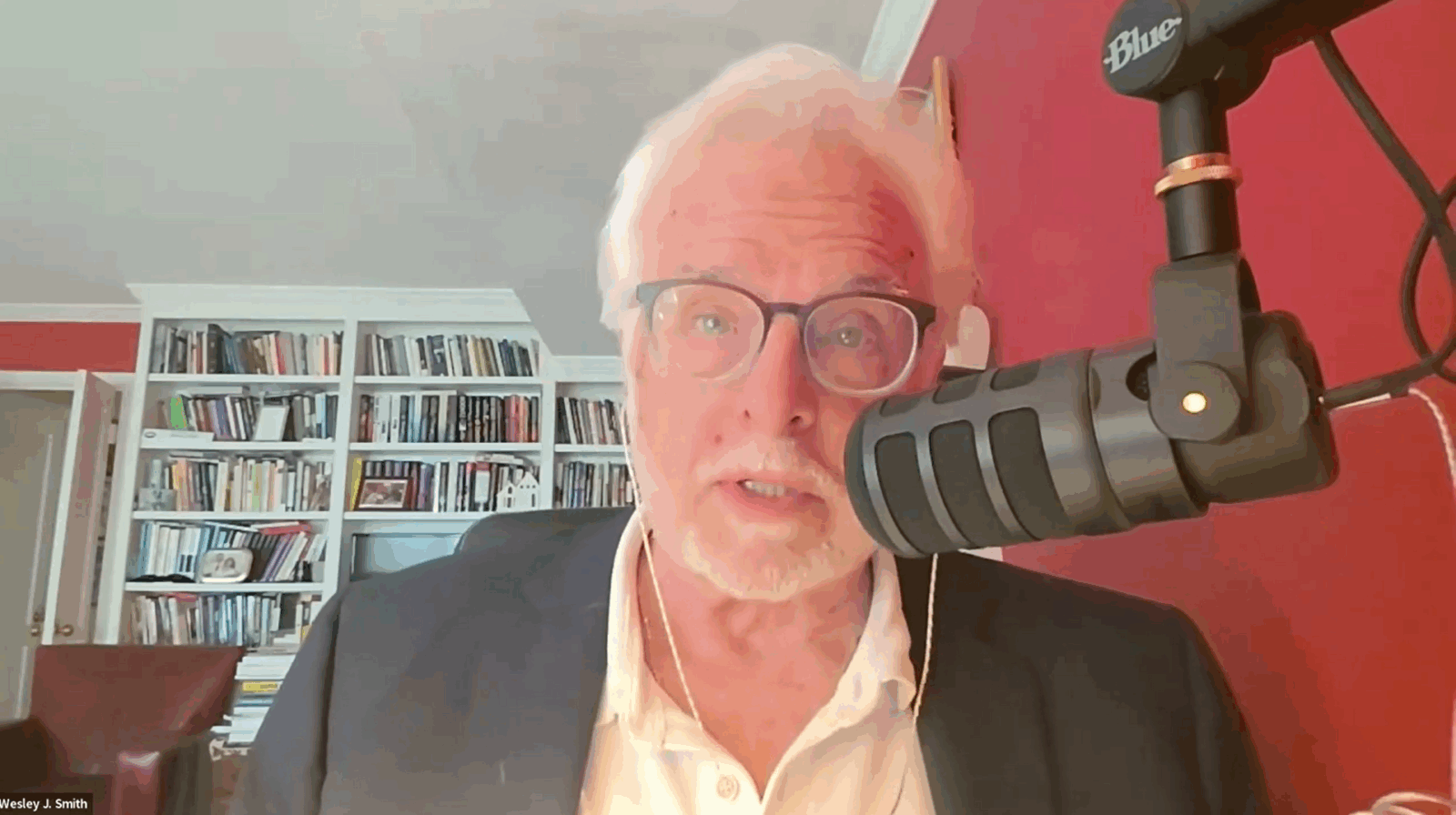


Wesley J. Smith at Wisconsin Right to Life: There Is No Such Thing as a “Little” Assisted Suicide
On April 3, 2025, Wesley J. Smith gave a presentation to Wisconsin Right to Life. After sharing how a friend’s suicide under the influence of the Hemlock Society propelled him into public opposition of the euthanasia movement, Smith explores the personal and societal consequences of embracing assisted suicide.

The Lies in New York’s Assisted Suicide Bill

Wesley J. Smith Talks Human Exceptionalism on Family First New Zealand
Wesley J. Smith joined host Simon O’Connor on Family Matters, a show from Family First New Zealand, to discuss human exceptionalism. Together, they discuss what makes humans different from animals, the problem with mainstream bioethics today, why euthanasia is wrong, and more!

Swiss Canton Liberates Suicide Tourism from Police Investigation

Washington Bill to Allow Non-MD-Prescribed Assisted Suicide and to Shorten Waiting Period

Will We Starve Dementia Patients in Slow Motion?
Moves are afoot in bioethics to require caregivers to withhold food and water by mouth from a patient made incompetent by dementia if that patient, while compos mentis, has signed such a request — and even if the patient willingly eats, enjoys meals, or asks for food. It is sometimes called “voluntary stop eating and drinking [VSED] by advance directive,” in the parlance.
I have frequently criticized VSED by directive as inhumane to the patient, cruel to caregivers (as it forces them to starve people to death), and designed to open the door to lethally jabbing those with advanced dementia as the less onerous alternative to their being made to starve to death.
Now, as supposedly some form of compromise, there is a proposal on the table to barely feed — i.e., malnourish — dementia patients who have previously signed such a directive. From, “Mr. Smith Has No Mealtimes,” published in the Journal of Pain and Symptom Management (citations omitted):
Read More ›Minimal Comfort Feeding (MCF)…is the provision of only enough oral nutrition and hydration to ensure comfort. With MCF, eating and drinking is not scheduled; rather, caretakers offer food and liquids only in response to signs of hunger and thirst. Patients are neither wakened for regular mealtimes nor encouraged to eat or drink. Instead, they are offered frequent, fastidious mouth care, continued social contact, therapeutic touch, sensory distraction, and medications to relieve distress associated with apparent thirst or hunger before being provided with minimal amounts of liquid or food.

Canada’s Socialized Health-Care Culture of Death: 15,000-plus Die Awaiting Care; 15,000-plus Euthanized

Assisted-Suicide Death Ceremonies Becoming Normalized
